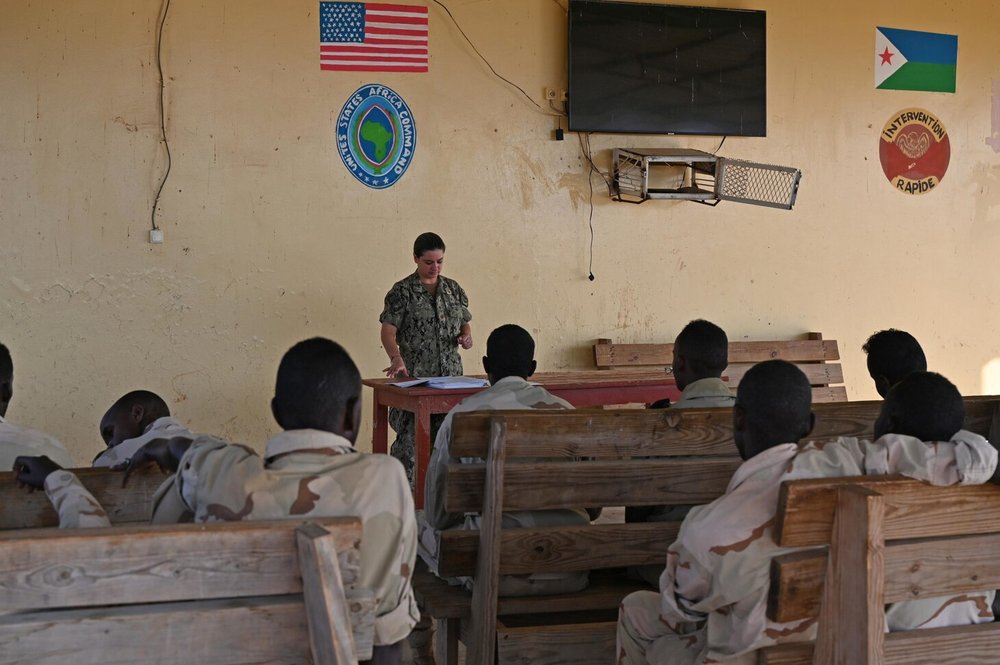Recently, Lt. Cmdr. Alison Hoyt, the Combined Joint Task Force – Horn of Africa (CJTF-HOA) deputy staff judge advocate stepped in to provide critical training to the Armed Forces of Djibouti (FAD) Bataillon d’intervention rapide (BIR), on behalf of the Defense Institute for International Legal Studies (DIILS).
Under Title 10 U.S. Code Section 333, the U.S. Government develops programs with foreign forces that may include the provision and sustainment of defense articles, training, defense services, supplies, and small-scale construction supporting security cooperation.
These programs require the U.S. to provide training that promotes the observance of and respect for the law of armed conflict, human rights and fundamental freedoms, the rule of law, and civilian control of the military.
“Usually, this training is conducted by the DIILS, but because of COVID-19, their training programs have been severely restricted, so they asked me if I could conduct the training on their behalf for the BIR,” said Hoyt.
CJTF-HOA is committed to supporting its partners even in the degraded COVID-19 environment.
According to Hoyt, when state governments enter treaties and national policy is written at the highest levels, obligations often don't trickle down to the individual soldier, who is actually the one who has to implement them.
“I think it's important for soldiers to understand why and how they should protect human rights and operate within the construct of the Law of War, rather than simply relying on the orders of their superiors,” Hoyt said.
Education and promoting compliance with the rule of law to foreign partners only strengthens both the U.S. and their legitimacy on the world stage, she added.
“The first step is education,” Hoyt said. “Education leads to humanization and humanization is what allows us to see our enemies as versions of ourselves, deserving of dignity even in the context of war.”
Often when teaching these courses, the concepts are new to soldiers, especially the more junior ones.
“Very few people or organizations want to violate internationally accepted guidelines for the treatment of people, but we have thousands of years of warfare telling us to win at all cost, which doesn't play very well in our modern, global society,” Hoyt said. “This type of training helps soldiers reframe that viewpoint into winning with dignity.
Hoyt’s normal day-to-day responsibilities consist of advising operators on plans and operations, and subsequently advising the commander on the same.
“The questions raised during training by the students show me that they are interested and eager to learn how to be both better soldiers and better people, and they understand how following international standards legitimizes and strengthens their organization,” Hoyt said.
She enjoys getting to interact and work with the BIR Soldiers and feels like she is making a real impact.
“During every session, I can see the light bulbs come on and the pride of the students increase,” Hoyt said. “Everything I teach can be boiled down to basic human decency, on the battlefield or off, so if I can make even one Soldier treat a detainee with more respect, or for that matter, treat their fellow humans with more respect, I have done something honorable and worthwhile with my life.”
After the training one of the BIR Soldiers said through an interpreter “I never heard some of the things we learned today. We learned a lot. It’s important because if we don't know the rules…we could make a mistake…and now I know what is lawful and the right things to do.”
